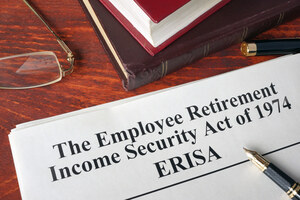 It was a strange ERISA lawsuit from the outset. The bottom line, though, is that states now seem to have a green light to explore creative savings solutions for the growing number of younger workers who are either ineligible or financially unable to save for retirement through traditional ERISA retirement plans.
It was a strange ERISA lawsuit from the outset. The bottom line, though, is that states now seem to have a green light to explore creative savings solutions for the growing number of younger workers who are either ineligible or financially unable to save for retirement through traditional ERISA retirement plans.Role reversal
The Howard Jarvis Taxpayers Association (HJTA) is a public interest organization that seeks to promote taxpayer rights. If the name “Howard Jarvis” rings a bell, it is probably because he was the driving force behind Proposition 13, a 1978 California initiative that capped property taxes. At the same time, as some argue, Prop 13 gutted investment in California’s public services, including schools, roads and public safety.
In CalSavers, HJTA challenged the legality of a state-sponsored retirement savings program that permitted employees of employers who did not sponsor ERISA retirement plans to save for retirement through a vehicle very like a Roth IRA. Employers who choose not to sponsor ERISA plans are typically small employers.
The practical issue for the plaintiffs was the cost to California taxpayers of administering the CalSavers program. The legal issue was whether the broad preemption provisions of ERISA prevented the state from administering the program.
It was an odd lawsuit from the start because, instead of deploying ERISA to protect employee retirement savings (the full name of the law is, after all, the Employee Retirement Income Security Act), the plaintiffs sought to use the law to block implementation of an alternative retirement savings vehicle.
ERISA preemption
The entire question of when federal ERISA law preempts state laws is of near-theological complexity. As a general rule, though, federal law preempts state law when two statutes cover the same situation. The overlap between the two must be nearly complete.
In CalSavers, the Ninth Circuit found that:
“CalSavers is not an ERISA plan because it is established and maintained by the State, not employers; it does not require employers to operate their own ERISA plans; and it does not have an impermissible reference to or connection with ERISA. Nor does CalSavers interfere with ERISA’s core purposes.”
In other words, the overlap is insufficient.
Diverse workforce, diverse solutions
The world of work has changed quite a bit since ERISA was enacted in 1974. It is more diverse and more fluid. Workers move through full-time, part-time, entrepreneurship and multiple simultaneous jobs. More people expect to work during retirement, and the economic safety net of Social Security seems more uncertain than ever before. In 2024, nearly half of all American workers are employed by small businesses that may be less likely to maintain ERISA retirement plans. Given the current menu of savings options, many workers are in trouble when it comes to saving for retirement.
The federal SECURE Act, as amended, is intended to grapple with the problem of long-term (meaning two years or more) part-time workers, who have been unable to satisfy the eligibility requirements of traditional employer 401k plans.
CalSavers and at least 18 other state-sponsored retirement plans address another segment of the issue – employees whose employers do not offer an ERISA plan. To date, similar schemes either exist or will roll out within the next year in:
- Colorado
- Connecticut
- Delaware
- Hawaii
- Illinois
- Maine
- Maryland
- Massachusetts
- Minnesota
- Missouri
- Nevada
- New Jersey
- New Mexico
- New York
- Oregon
- Vermont
- Virginia and
- Washington
Federal legislation on the horizon?
READ MORE ERISA VIOLATION LEGAL NEWS
A change in law could enable millions of Americans to save for retirement. But it would also upset a lot of existing relationships. Chief among these is an entire lucrative financial services industry built on advising plan sponsors and administering plan participants’ 401k accounts. This, of course, is at the heart of the recent boom in 401k plan breach of fiduciary duty lawsuits. The new proposal would also be another step in de-linking retirement income security from employment.
It is a radical idea whose time may not have arrived. The sheer persistence of efforts toward this potential solution suggests that it is worth watching, however.
